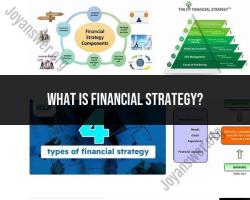Which broker is best for beginners?
Choosing the best broker for beginners is a crucial decision, as it can significantly impact your investing or trading experience. Here are some tips and considerations to help you make an informed choice:
Regulation and Security: Look for brokers that are regulated by reputable financial authorities. This ensures your funds are protected, and the broker adheres to industry standards for security and transparency.
Account Types: Beginners should consider opening a basic or standard account with low minimum deposit requirements. Avoid complex accounts designed for experienced traders.
User-Friendly Platform: A user-friendly trading platform is essential. The interface should be intuitive and easy to navigate. Most brokers offer demo accounts, which allow you to practice trading without risking real money to see if the platform suits your needs.
Educational Resources: Opt for brokers that provide educational resources like webinars, tutorials, articles, and videos. These materials can help beginners learn about trading and investing.
Customer Support: Good customer support is crucial, especially for beginners who may have questions or encounter issues. Ensure the broker offers responsive and helpful customer support via email, phone, or live chat.
Costs and Fees: Compare the cost structure of different brokers. Pay attention to commissions, spreads, overnight financing costs, and any other fees. Low-cost brokers can be advantageous for beginners.
Asset Selection: Make sure the broker offers the types of assets you're interested in trading. Whether it's stocks, forex, commodities, cryptocurrencies, or other financial instruments, choose a broker that aligns with your investment goals.
Demo Accounts: As mentioned earlier, demo accounts allow you to practice with virtual money. This is an excellent way for beginners to familiarize themselves with the platform and trading strategies.
Research Tools: Access to research tools and analysis is beneficial. Some brokers provide market news, charting tools, technical and fundamental analysis, and other resources that can help you make informed decisions.
Risk Management Tools: Beginners should look for brokers that offer risk management tools like stop-loss orders, take-profit orders, and negative balance protection to minimize potential losses.
Mobile Trading: In today's world, having a mobile trading app can be a significant advantage. It allows you to trade on the go and monitor your investments at any time.
Minimum Deposit: Ensure the broker's minimum deposit requirement fits your budget. Many brokers offer low initial deposit amounts, making it accessible for beginners.
Trading Options: Different brokers offer various trading options, including market orders, limit orders, and more. Beginners may find market orders more straightforward, but having access to various order types can be beneficial as your experience grows.
Community and Social Features: Some brokers offer social trading features that allow beginners to follow and copy the trades of experienced investors. This can be a learning opportunity and a way to potentially earn while you learn.
Reviews and Recommendations: Do some research and read reviews from other users and experts. Look for brokers with positive reputations and a history of reliable service.
Trial Period: If you're unsure, consider starting with a broker that allows you to trade with a small amount of real money. This way, you can experience live trading with limited risk before committing more significant funds.
It's important to note that the "best" broker for beginners can vary based on individual preferences, goals, and the types of assets you want to trade. Take your time to research and compare brokers to find the one that best suits your needs and level of expertise. Additionally, seek advice from experienced traders or financial advisors if you're uncertain about your choice.
1. Recommended Brokerage Platforms for Beginners
Several brokerage platforms are well-suited for novice investors, offering user-friendly interfaces, educational resources, and affordable fees. Some of the top recommendations include:
Fidelity Investments: Fidelity is a well-established brokerage with a wide range of investment options, including stocks, bonds, mutual funds, and ETFs. They offer a variety of educational resources, including online courses, webinars, and investment guides.
Charles Schwab: Charles Schwab is another reputable brokerage with a strong focus on customer service. They provide a variety of investment tools and research reports, along with educational resources for beginners.
TD Ameritrade: TD Ameritrade is known for its user-friendly trading platform, Thinkorswim, which offers advanced charting and analysis tools. They also provide a variety of educational resources, including tutorials and video demonstrations.
Vanguard: Vanguard is a mutual fund company that also offers brokerage services. They are known for their low fees and index funds, which are a good option for long-term investors.
Robinhood: Robinhood is a popular mobile brokerage app that offers commission-free trading on stocks and ETFs. They also provide educational resources, such as market news and stock research.
2. Key Features and Considerations for Selecting a Brokerage
When selecting a brokerage, beginners should consider several factors to ensure they choose a platform that suits their needs and investment goals. Some key features to consider include:
Account fees and minimum requirements: Some brokerages charge inactivity fees, account minimums, or fees for certain transactions.
Investment options: Ensure the brokerage offers the types of investments you are interested in, such as stocks, bonds, mutual funds, or ETFs.
Trading platform: Evaluate the ease of use and features of the trading platform, including charts, research tools, and order execution capabilities.
Customer support: Consider the availability and quality of customer support, including phone, email, and live chat options.
Educational resources: Look for brokerages that offer educational resources, such as tutorials, webinars, and investment guides.
3. Finding the Best Brokerage for Beginners
To find the best brokerage for your needs, consider the following steps:
Define your investment goals: Determine your investment objectives, such as long-term savings, retirement planning, or short-term trading.
Compare brokerage options: Research and compare different brokerages based on their features, fees, and customer support.
Open a demo account: Many brokerages offer demo accounts that allow you to practice trading without risking real money.
Seek guidance: If you need further assistance, consider consulting a financial advisor for personalized recommendations.
4. Brokerage Firms with Educational Resources for Beginners
Several brokerages offer extensive educational resources for beginners, including:
Fidelity Investments: Fidelity provides a comprehensive learning center with online courses, webinars, and investment guides.
Charles Schwab: Charles Schwab offers a dedicated section for beginners, including investment basics, trading tutorials, and market news.
TD Ameritrade: TD Ameritrade provides an education center with video tutorials, articles, and self-paced courses.
Vanguard: Vanguard offers a beginner's guide to investing, as well as a series of online courses on various investment topics.
Robinhood: Robinhood provides a learning center with articles, videos, and quizzes on investing basics and stock analysis.
5. Costs and Fees Associated with Different Brokerage Options
Brokerages typically charge various fees, including:
Account fees: Some brokerages charge inactivity fees or account minimums.
Transaction fees: Some brokerages charge fees for trades, such as commission fees or per-trade fees.
Fund fees: Some mutual funds and ETFs charge expense ratios, which are ongoing fees that cover fund management expenses.
It is essential to compare fee structures and understand the costs associated with different brokerages before making a decision.
6. Additional Tips for Beginners
Start with a small amount: Begin investing with a small amount of money and gradually increase your contributions as you gain experience.
Diversify your investments: Diversifying your portfolio across different asset classes can help reduce risk and enhance long-term returns.
Invest for the long term: Avoid short-term trading and focus on long-term investing to achieve your financial goals.
Seek professional advice: If you need personalized guidance, consider consulting a financial advisor.
Investing can be a rewarding and effective way to grow your wealth over time. By understanding the basics of investing and selecting a suitable brokerage platform, beginners can embark on a successful investment journey.












